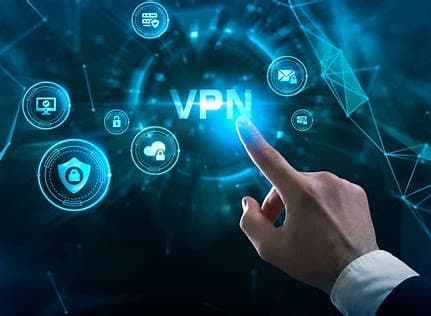
VPN Technology: A View Inside This Privacy Tech
March 28, 2024
Learn all about VPN and manage your data (including data in transit).
Latest in tech
Introduction
Navigating the online world can pose significant privacy challenges. You might be in control of the data on your device or the platforms you share your data with, but what about data in transit? This data can be intercepted by any threat actor and used for malicious purposes.
Here is where VPN comes into the picture.
VPN means Virtual Private Network. A VPN acts as a shield for your data when it is in transit; that is, it envelops your data alongside other information and guides it securely until it reaches its destination.
This is done by masking your IP address so that attackers can't infiltrate your network through your IP address
Contrary to popular belief, a VPN doesn't just work for the IP address; it shields the entire Internet packet and directs it to a proxy location.
Brief History of VPN
Like most technologies, VPN isn't credited as having been created by a single individual, but one single person has been known to have instigated the development of VPN. In 1996, a Microsoft employee by name, Gurdeep Singh-Pall developed the earliest known version of VPN known as the Peer-to-Peer Tunneling Protocol.
Virtual Private Networks (VPNs) have been around since the mid-1990s, initially developed as a way for companies to securely connect remote offices and employees to their private networks over the internet.
The early VPN protocols, such as Point-to-Point Tunneling Protocol (PPTP) also called the Peer-to-Peer Tunneling Protocol and Layer 2 Tunneling Protocol (L2TP), were designed to provide encryption and secure tunnelling for data transmission.
As the internet became more widespread, the need for secure remote access grew, and VPNs gained popularity among individual users seeking privacy and anonymity online. In the 2000s, more advanced VPN protocols like OpenVPN and Internet Protocol Security (IPsec) were introduced, offering better security and performance.
Advantages of VPNs
- Privacy and Nnanomity :
VPNs encrypt your internet traffic, making it difficult for third parties, such as internet service providers (ISPs), governments, or hackers, to monitor your online activities or access your data. - Secure Remote Access :
VPNs allow secure access to corporate networks, enabling employees to work remotely while maintaining the same level of security as if they were physically connected to the office network. - Bypass Geo-restrictions :
This is one of the popular uses of VPN in territories that has lots of Internet restrictions.
By rerouting your internet connection through a VPN server in a different country, you can bypass geographic restrictions and access platforms that may be blocked in your region. - Public Wi-fi Security :
When connected to public Wi-Fi hotspots, which are often unsecured, a VPN provides an encrypted tunnel, protecting your data from potential eavesdroppers or man-in-the-middle attacks.
Disadvantages of VPNs
- Potential for Reduced Internet Speed :
Encrypting and routing your internet traffic through a VPN server can result in slower internet speeds, especially if the VPN server is located far away from your location. - Potential Privacy Issues :
While VPNs can improve your online privacy, some VPN providers may log and sell your browsing data, compromising your privacy. It's essential to choose a reputable VPN service with a strict no-logs policy. - Legal Consequences :
Some countries have strict regulations or outright bans on the use of VPNs, making it illegal to use them in those regions. Ensure that the use of VPN isn't shunned against in your territory before making use of it. - Cost :
While there are free VPN services available, they often have limitations in terms of speed, server locations, and data caps. Reliable and feature-rich VPN services typically require a paid subscription. Optimally, it is advisable to use a premium VPN service as some free VPN platforms make money selling browsing data of their users.
How a VPN Work
- Connection Establishment: When you connect to a VPN server, your device establishes a secure, encrypted connection with the VPN server over the internet.
- Encryption of Data: All the internet traffic from your device is encrypted using strong encryption algorithms, such as AES (Advanced Encryption Standard), before being sent to the VPN server.
- Tunnelling: The encrypted data is then encapsulated within a secure tunnel and transmitted over the internet to the VPN server.
- Servers: The VPN server decrypts the received data and forwards it to its destination on the internet, making it appear as if the traffic originated from the VPN server's IP address, masking your real IP address.
- Traffic is Sent Back: When data is sent back from the internet, it follows the reverse path, being encrypted by the VPN server and transmitted back to your device through the secure tunnel.
Suggested VPNs
- Nord VPN : This is one of the best VPNs out there. It focuses on efficient privacy.
- Norton VPN : One of the most popular VPNs available. This VPN is multifaceted. It prioritises speed, efficiency, security and stability.
- Express VPN : Another recommended VPN that pays special attention to speed of connection.
- Atlas VPN : if you're looking for a VPN that can give you a stable Internet connection, then Atlas VPN should be your go-to tool.
Some of these VPN tools offer free versions, but for optimal usage, get the premium.
Conclusion
VPNs have become an essential tool for individuals and businesses seeking online privacy, security, and access to restricted content. While they offer numerous advantages, it's crucial to consider their potential drawbacks and choose a reputable VPN service that aligns with your needs. As technology continues to evolve, VPNs will likely play an increasingly important role in protecting our digital privacy and enabling secure remote access.
See moreLeave a Reply
Your email address will not be published.
Required fields are marked*
Comment *
Name*
Email*